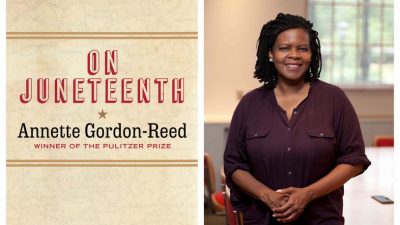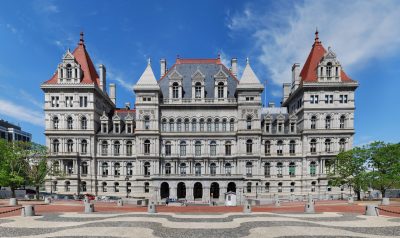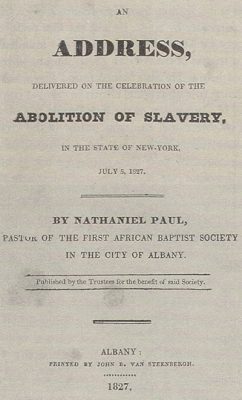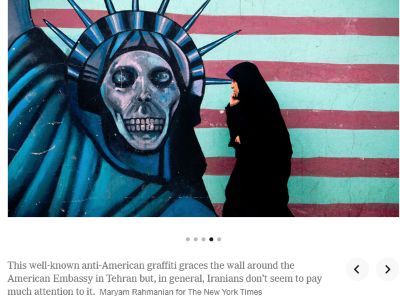
Nationally renowned American historian Annette Gordon-Reed has been everywhere this past year speaking out on history and the culture wars. Actually she has not been anywhere except for her home in New York City. It just seems that way because during the COVID pandemic she has been everywhere virtually without having to leave home. That also means I have had the opportunity to hear her virtually without having to leave home either (and read her as well).
This blog is dedicated to highlighting a year of Gordon-Reed. I do not claim to have watched all her performances, read all her articles, or articles about her, but there are enough examples to provide a good insight into the thinking of one of America’s foremost historians discussing some of the hot-button cultural war topics of the times. To include all her performances would make for a very long blog.
Spoiler alert: Annette Gordon- Reed speaks normal.
July 2, 2020: Erasing History or Making History? Race, Racism, and the American Memorial Landscape
The AHA executive director James Grossman hosted David W. Blight, Yale University, and Annette Gordon-Reed, Harvard University. The interview is available online.
In this blog, I will focus on the comments of Gordon-Reed and given the space limitations will not be able to cover everything. One notes that the interview occurred shortly after the murder of George Floyd.
She commented that the culture war fight over monuments shifts attention from economic and social concerns. While that is true, symbolic acts are important, too. For example, the toppling of the statue of King George III in lower Manhattan after the signing of the Declaration of Independence was not simply a mere “symbolic” act. The challenge is to use the symbolic to further the other issues and not diminish them.
Gordon-Reed took great issue with the lumping together of the founders of the United States of America and the founders of the Confederacy. The founding documents of the Confederacy typically are overlooked compared to the military exploits of Robert E. Lee and Stonewall Jackson. Although the names of two political entities are similar and both share the American Revolution in common, the values expressed in the two sets of founding documents are not the same.
One could go one step further than she did. If England had ever freed the colonies on its own initiative as it later did Canada, it is quite possible that it would have divided the colonies into multiple nations. Without the shared experience of the American Revolution and leadership of George Washington, little held the 13 colonies together in 1776 beyond the previous allegiance to England. The Confederate Constitution provides us with a glimpse of how the South might have been governed as an independent country right from the start if there had not been a United States.
She considers July 4, 1776, to be the birthday of the country. She said there was nothing inevitable from the arrival of the English in 1607 in Virginia to the Declaration of Independence in 1776. She adds that 1776 also unleashed the anti-slavery movement (although it took until Juneteenth for it be fulfilled nationally). Although she did participate in The New York Times 1619 Project, her comments indicate she does not support replacing 1776 with 1619.
On the subject of memorials, monuments, and flags, Gordon-Reed said we need to have this kind of discussions [referring to the vote in Mississippi on changing the state flag] because people do terrible things. She opposes taking down monuments outside the law but supports the Jeffersonian idea of having periodic discussions about the monuments we do have. For the statue of Teddy Roosevelt at the American Museum of Natural History, she favors the removal the two people on his side due to the impact on children who see it. Personally, I favor adding a (white) Rough Rider of the same size and musculature as those two.
October 29, 2020: Jefferson: Then and Now (Massachusetts Historical Society)
The reputations of all of the founders have changed dramatically over the course of American history, none more than that of Thomas Jefferson. Historians Annette Gordon-Reed, Harvard University, and Peter Onuf, University of Virginia, will discuss the implications of recent political and social developments for our image of the slave-owning author of the Declaration of Independence, emphasizing the importance of situating Jefferson in his own historical context for a better understanding of the history and future prospects of democracy in America. Online here.
Sometimes, Gordon-Reed really tells it like is us with no sugarcoating. For example, there could not have a United States of America without slave states – get over it. This observation may be too real for people who prefer two-dimensional history. She comments that in the real world, Jefferson didn’t know what to do about slavery. He had faith in science and the enlightenment. Change would continue. We had defeated the most powerful nation on earth and there was an optimism that good things would happen as time went on. The idea of infinite possibilities seems naïve today but not then – the Founders thought things could become better.
One telling comment rings especially true: we need to believe in a shared past.
Gordon-Reed, as a biographer, tends to think of Thomas Jefferson as a person and not a cliché. He was both a slave-owner and author of the Declaration of Independence. Both aspects are part of who he was an individual human being. She suggests we think of him as a complex person who wanted to make a mark in the world and did.
Gordon-Reed adds a personal note on her attraction to Jefferson. She became Jefferson fan in school. She learned that life and people are not simple. Jefferson had to have had a curious mind and that appealed to her. Yes historical researched shows people are flawed people but that does not eliminate the human need for heroes. We can recognize the importance of people and commemorate them without the adoration. She predicts that if we can revive a civic sense of democracy, then Jefferson will be an important figure.
She considers patriotism to mean being critical and telling the truth. After all, you can love your children without believing everything they do is right.
May 4, 2021: Black America’s Neglected Origin Stories (Atlantic, online, print June issue)
She begins her article with the revelation that she took Texas history in the fourth and seventh grades. I wonder how many states teach state history even once. In a book review on her new book, On Juneteenth, University of Texas Professor H. W Brands notes that the 7th grade teaching of Texas history to Texans occurs at the same age Catholic children are confirmed and Jewish kids are bar- and bat-mitzvahed (NYT May 9, 2021).
In those grades, she learned about the period of Spanish exploration in Texas. In particular, she recalls “stray references to a man of African descent—a ‘Negro’ named Estebanico—who travelled throughout Texas. She calls him “one of the first people of African descent to enter the historical record in the Americas.” Estebanico’s facilities with languages garners additional attention leading to more generalized comments about Africans as language-learners in American history. She notes that the 1520s is roughly a century earlier than when the most popular stories date the arrival of Africans. Gordon-Reed devotes a paragraph to observing the Virginia origin story [meaning 1619] leaves out this earlier time.
Next she turns to the origin stories of Jamestown in 1607 and Plymouth in 1620. She recognizes the importance of origin stories for individuals, groups, and nations. While these two stories include interactions with the local people, she laments the absence of Africans in either one. Gordon-Reed suggests St. Augustine, Florida, beginning in 1565, to be added to the mix.
Her next point is more crucial. In her studies of American history, the British and its colonies tend to be privileged in the narrative. Spain, France, and the Dutch tend to be historical footnotes, ignored or minimized. England was the winner in all these relationships. The implication of Gordon-Reed’s observations is that beside the traditional issue of the role of Africans in American history, there is separate issue of the privileging of English or Anglo history in American history. I would refine that further to privileging the New-England-Massachusetts-Harvard perspective based on where these histories were written. White people from New York to the Confederates can be shortchanged in these histories as well.
May 9, 2021: Texas on Her Mind (NYT)
In the aforementioned book review, Brands makes a telling point about her. He cites the story she would have learned about Cynthia Ann Parker. This staple of the 7th grade class tells of “a white girl stolen by Comanches on the Texas frontier and adopted into the tribe. She bore a son, Quannah, who became the last great warrior of the Comanches.” He quotes Gordon-Reed realizing “that so many wrong things were packed into this one narrative.” Such as the Comanches “defending from the whites … land they had seized from other Indians. She discovered that Indians held slaves, with some [of them] for this reason siding with the Confederacy during the Civil War.” Kidnapping girls to make them brides also offended her.
I would comment that for Gordon-Reed, the curious individual growing up in this milieu in Texas of Africans, Comanches, Confederates, Indians, Spanish, and (white) Texans helped prepare her to tackle a subject like Thomas Jefferson. She has the perceptive ability to see beyond the two-dimensional stereotypes. She was blessed with encountering to many of them they could not all be true.
June 18, 2021 On Juneteenth — A Virtual Discussion with Annette Gordon-Reed (American Philosophical Society)
Her new book, On Juneteenth, combines history and family memoir of her life in Texas. As a child, Juneteenth was a fun day of drinking soda pop to excess, fire crackers, visiting family and friends like July 4 is a national holiday. Gordon-Reed identifies family as the essence of the holiday and separation of family as enslavement.
Given all the current fuss about the Alamo and slavery, she comments that it is impossible to teach Texas history and the Alamo without including slavery. The Texas Constitution differs from the U.S. Constitution in that it is explicit about slavery and racism. Mexico had outlawed slavery. The Texas slaveholders wanted to be part of the Cotton Kingdom with slavery and not Mexico without it. Mexico’s desire for a buffer with the Comanche often is overlooked as well.
Slavery in Texas predates slavery in Virginia. It began in the 1500s (1528) with Spain. The story was not one of plantation but exploration. One African even reached the Pacific as one of four survivors. Gordon-Reed wonders what the impact would be if these Spanish/African memories were added to America’s origin story that didn’t privilege the English and Virginia. She wants such an adjustment to be considered.
July 12, 2021: Jan. 6 was a “turning point” in American history
Interview by Chauncey DeVega, Salon
Gordon-Reed sees January 6 as “potentially a turning point in the country’s history….The whole concept of democracy and the republic are at stake. Confederates have not abandoned the “Lost Cause.” The defenders of Confederate statues have not repudiated that past. They have not changed.
Strangely enough, the Confederates actually seem to have won the cultural battle over the Civil War. When Gordon-Reed was growing up in Texas, she only occasionally saw a Confederate flag. Now she sees them more than she ever had in her entire childhood. In the constant battle for power, she points to the plantation weddings as an example of how white people today can block out the real meaning of plantations in American history. She might have added that to some extent that has been going since the book and the movie Gone with the Wind in the 1930s Just because people admire the chivalry, nostalgia, and romantic setting of a medieval castle does not mean people want to live in the Middle Ages.
July 4, 2021: Between Juneteenth and the Fourth of July (NYT)
Let me conclude this overview with her own words:
Almost as soon as they were published, Jefferson’s soaring words in the Declaration’s preamble took on particular meaning to African Americans: “We hold these truths to be self-evident, that all men are created equal, that they are endowed by their creator with certain unalienable rights, that among these are life, liberty and the pursuit of happiness.”,,, Every major Black leader or commentator on Black life in the United States, from the 18th century until today, has used the Declaration to analyze and critique the status of Black Americans.
What does all this mean as the Congressional investigation of 1/6 is set to begin? Gordon-Reed is right to point out the importance, I would say necessity, of having a shared story for the country. Obviously we do not have one. The January 6 Commission will show for the record that we live in two separate countries making little pretense that we are united. Whether or not we can create that shared narrative by July 4, 2026, is highly problematical. But if the history organizations want to contribute to that effort, then Annette Gordon-Reed would be an excellent choice to spearhead that effort.
[F]ortunately, the Declaration does not belong solely to historians. Like all good writing, the words took on a meaning outside the context in which they were written.
The notion of equality referred to in the Declaration has become an animating principle in American life. Indeed Jefferson, by the end of his life, understood that his words on the subject had taken on a larger meaning. They even influenced Gen. Gordon Granger and, thus, played a role in Juneteenth….
It may be hard for some to do this in our fractious times, but both holidays should be used to reflect upon the common value that Juneteenth and the Fourth have come to express: the recognition of the equal humanity and dignity of people the world over.








